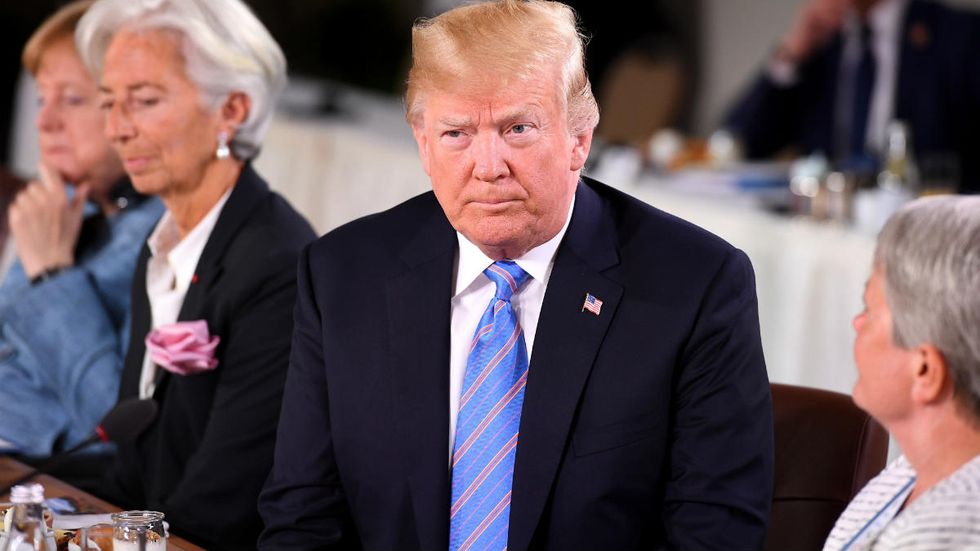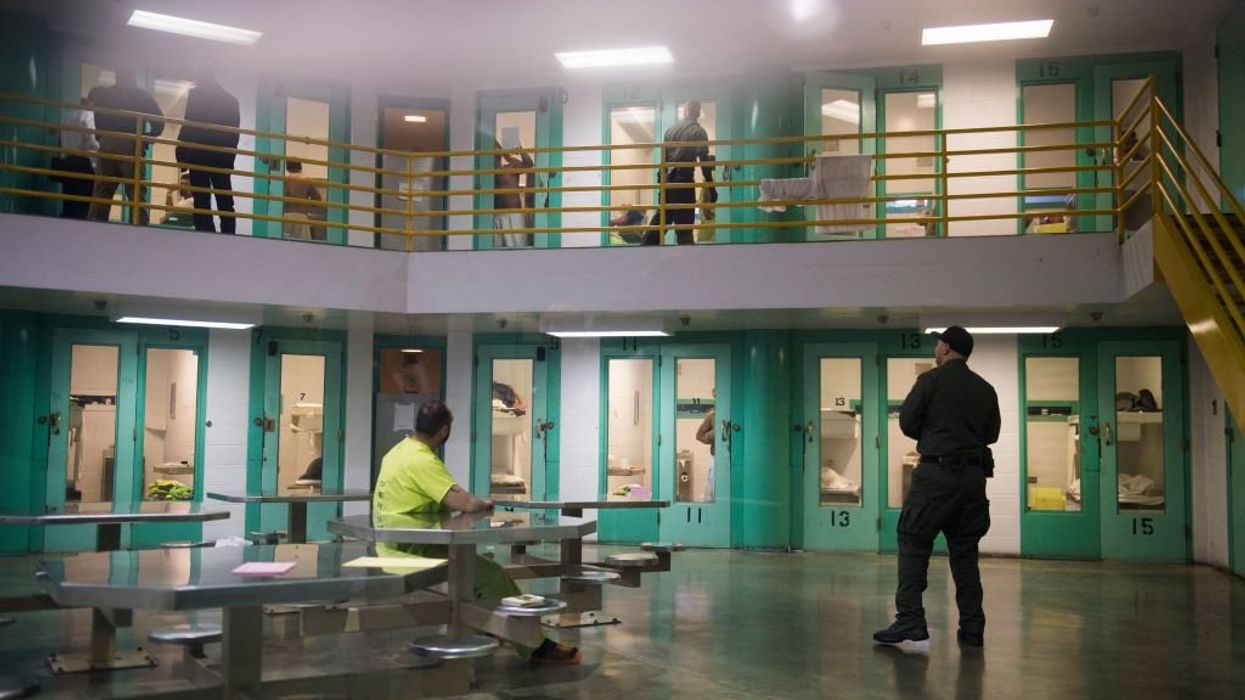
© 2024 Blaze Media LLC. All rights reserved.
What if President Trump's free-market critics are mistaken about his trade policy motivations?
After the Trump administration slapped a 25 percent import tax on steel and a 10 percent tax on aluminum imported from allied countries in the European Union, Canada, and Mexico, the president was roundly criticized by free-traders. Anyone who has ever taken Economics 101 knows that tariffs will raise prices on U.S. consumers and invite retaliatory tariffs from other countries, potentially erupting into a trade war. Germany and Canada have already threatened to raise their tariffs on U.S. goods in response to Trump's tariffs. With less trade all around and higher prices for goods and services, the economy suffers and everyone loses.
The president is often criticized as either ignorant on trade or willfully blind to the established truths of economic theory. Yet at the weekend's G-7 meeting, President Donald Trump surprised many of his critics by demanding an end to all tariffs and subsidies in the G-7 trade zone. Speaking to reporters Saturday, the president outlined his ultimate goal for trade.
"Ultimately that's what you want," Trump said. "You want a tariff free. You want no barriers. And you want no subsidies. Because you have some cases where countries are subsidizing industries and that's not fair."
Trump's defense of free trade was welcomed by even his staunchest critics, like Sen. Ben Sasse, R-Neb.
"If the President is actually serious about leading the expansion of a G-7 no-tariff, free-trade agreement, that's tremendous, tremendous news — for the U.S. and for the free nations of the world. I would happily carry his bag to every single meeting of those negotiations," Sasse said in a statement.
But if Trump is ultimately supportive of free trade, why inflict tariffs on U.S. allies under unserious national security pretenses? Why risk sinking America's booming economy with tariffs? How can Trump support free trade and raise tariffs?
Well, what if Trump is the one retaliating? Though he advocated for tariffs throughout the presidential campaign, Trump always insisted he believed in free trade as long as it was fair. As Commerce Secretary Wilbur Ross wrote last year, while other nations like to criticize the United States for anti-trade rhetoric, their policies put high tariffs on U.S. goods.
One of the examples Ross pointed out in his piece, and one that Trump cites frequently, is a 10 percent tariff the EU charges on imported American cars. The EU also charges higher tariffs than the U.S. on dairy products, fruits and vegetables, coffee and tea, cereal, confections, and fish, among other products. A more recent example Trump has cited is Canada's dairy tariff of up to 300 percent and its heavily subsidized dairy industry.
With Trump saying he wants to see all these tariffs abolished, it seems unlikely that he's ignorant on trade or purposely instigating a trade war. If the EU and Canada disarmed, as it were, and reduced all their tariffs to zero, the U.S. would follow suit, and Trump would be responsible for ushering in a new trade order that benefits all.
The president seems to think raising U.S. tariffs will accomplish that end. If under the status quo, foreign countries have levied harmful tariffs on U.S. goods, is it best to continue on as if they haven't, or to respond in kind with higher tariffs and attempt to force a change?
We now have a president who is trying to change the status quo. He is doing what he thinks is best, and he's doing it with the powers Congress ceded to the executive branch. Perhaps the harm done by higher tariffs on imported steel and aluminum are not worth the potential benefits from lower tariffs. But this is a question for debate, and the branch of government where public deliberation is supposed to occur has deferred to the president.
If President Trump is wrong, there are constitutional remedies. Congress has the lawmaking power, and if it be the will of a supermajority of both the House and the Senate, lawmakers can override Trump's veto pen, take back lawmaking power, and reverse course on his tariff policy. Failing that, the American people will ultimately decide whether Trump's governance is good or bad at the ballot box in 2018 and 2020.
President Trump is gambling with the U.S economy on tariffs. It may be that he'll harm U.S. alliances and take the country down a path of economic harm. Or, it may be that Trump has taken an unpopular position against the status quo at the right time, in the right place, leading to change for the better.
We shall see.
#mc_embed_signup{background:#fff; clear:left; font:14px;}
/* Add your own MailChimp form style overrides in your site stylesheet or in this style block.
We recommend moving this block and the preceding CSS link to the HEAD of your HTML file. */
Want to leave a tip?
We answer to you. Help keep our content free of advertisers and big tech censorship by leaving a tip today.
Want to join the conversation?
Already a subscriber?
more stories
Sign up for the Blaze newsletter
By signing up, you agree to our Privacy Policy and Terms of Use, and agree to receive content that may sometimes include advertisements. You may opt out at any time.
© 2024 Blaze Media LLC. All rights reserved.
Get the stories that matter most delivered directly to your inbox.
By signing up, you agree to our Privacy Policy and Terms of Use, and agree to receive content that may sometimes include advertisements. You may opt out at any time.



